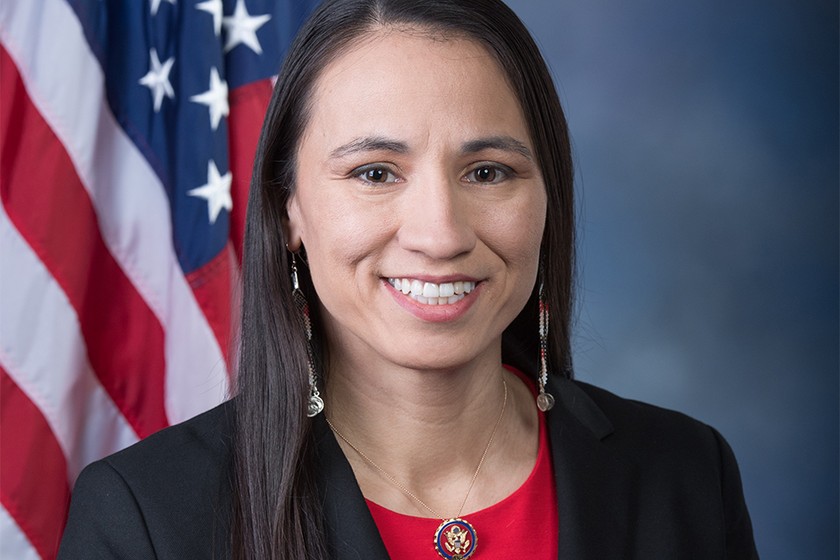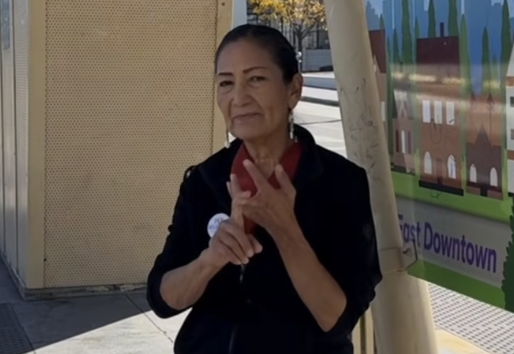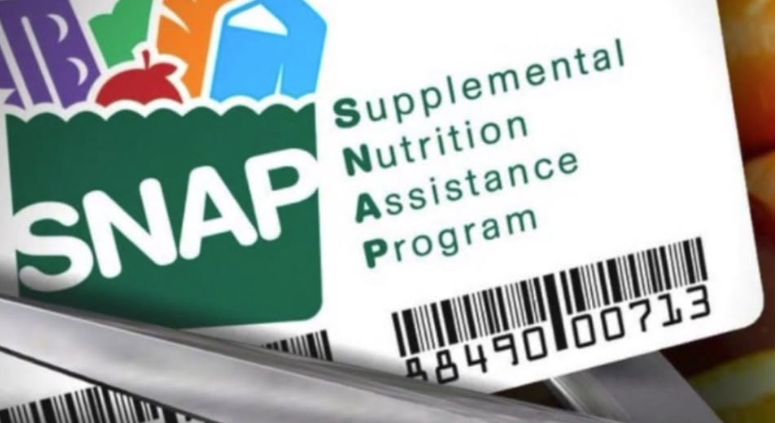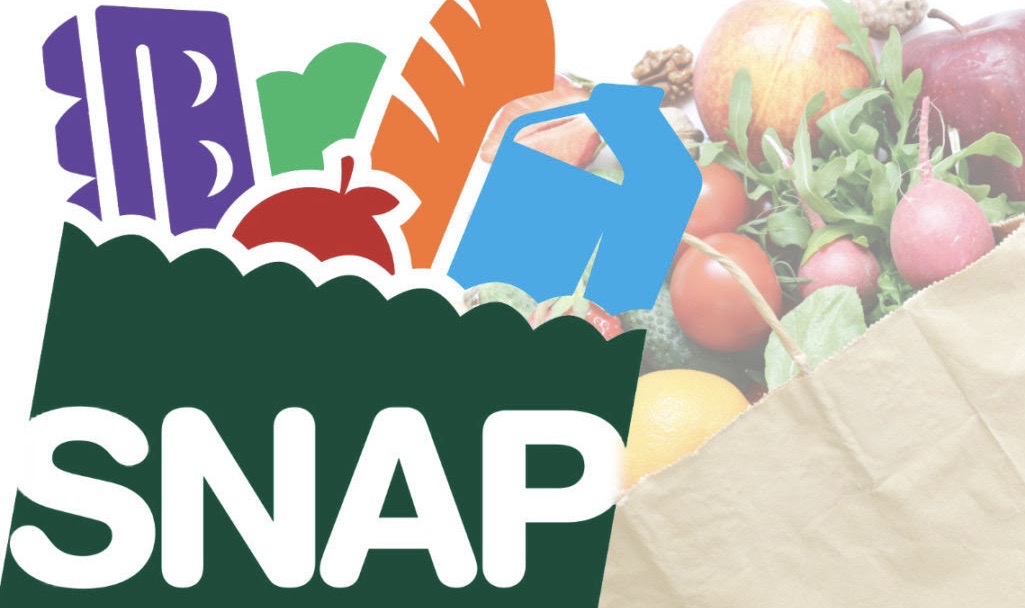Currents
- Type: Default
- Ad Visibility: Show Article Ads
- Reader Survey Question: No Question
- Video Poster: https://nativenewsonline.net/images/10_Years_Logo.png
Native Vote. According to a Politico article published on Monday morning, Rep. Sharice Davids, the lone Democrat in Kansas’ congressional delegation, is considering a U.S. Senate run as the state’s Republican-controlled Legislature debates whether to redraw her district to favor GOP candidates.
- Details
- By Levi Rickert
- Type: Default
- Ad Visibility: Show Article Ads
- Reader Survey Question: No Question
- Video Poster: https://nativenewsonline.net/images/10_Years_Logo.png
Native Vote. New Mexico gubernatorial candidate Deb Haaland released a statement Monday as the federal government shutdown entered its 31st day, warning that thousands of New Mexicans are facing food insecurity and healthcare challenges.
- Details
- By Native News Online Staff
- Type: Default
- Ad Visibility: Show Article Ads
- Reader Survey Question: No Question
- Video Poster: https://nativenewsonline.net/images/10_Years_Logo.png
Happy Native American Heritage Month! Each November, Native American Heritage Month is celebrated in the United States. While many Native Americans like to say we celebrate being Native Americans year round, it the month present opportunies to reflect on our ancestors, history, and culture.
- Details
- By Native News Online Staff
- Type: Default
- Ad Visibility: Show Article Ads
- Reader Survey Question: No Question
- Video Poster: https://nativenewsonline.net/images/10_Years_Logo.png
WASHINGTON — In addition to articles already covered by Native News Online, here is a roundup of other news released from Washington, D.C. that impacts Indian Country recently. Today marks 33rd day federal goverment partial shutdown. In all probability, this shutdown will become the longest in the country's history, which was 35 days long during the first Trump administration.
- Details
- By Native News Online Staff
- Type: Default
- Ad Visibility: Show Article Ads
- Reader Survey Question: No Question
- Video Poster: https://nativenewsonline.net/images/10_Years_Logo.png
Most of the United States "fall back" to Standard Time on Sunday, November 2, 2025. Officially the time change occurs at 2:00 a.m. local time when the time becomes 1:00 a.m., which means we gain the hour we lost this past spring. For many, the extra hour will allow for an extra hour of sleep.
- Details
- By Native News Online Staff
- Type: Default
- Ad Visibility: Show Article Ads
- Reader Survey Question: No Question
- Video Poster: https://nativenewsonline.net/images/10_Years_Logo.png
Two federal district judges said the U.S. government has $6 billion available to spend on food aid for millions of people who had prepared for those benefits to end tomorrow on Saturday, Nov. 1, 2025.
- Details
- By Shaun Griswold
- Type: Default
- Ad Visibility: Show Article Ads
- Reader Survey Question: No Question
- Video Poster: https://nativenewsonline.net/images/10_Years_Logo.png
As millions of Americans, including some 500,000 Native Americans, face the loss benefits because the Supplemental Nutrition Assistance Program (SNAP), which administers the food stamp program, is not being funding by the Trump administration beginning on Saturday, November 1, 2025, here is an overview of the program:
- Details
- By Levi Rickert
- Type: Default
- Ad Visibility: Show Article Ads
- Reader Survey Question: No Question
- Video Poster: https://nativenewsonline.net/images/10_Years_Logo.png
A federal judge in Boston will decide whether Supplemental Nutrition Assistance Program (SNAP) benefits should continue into November after 25 states—half of the nation—filed a lawsuit against the Trump administration to compel the release of food assistance funds during the ongoing federal government shutdown.
- Details
- By Levi Rickert
- Type: Default
- Ad Visibility: Show Article Ads
- Reader Survey Question: No Question
- Video Poster: https://nativenewsonline.net/images/10_Years_Logo.png
Next on Native Bidaské (Oct. 31, 12 p.m. ET), Levi Rickert and Chance Rush talk with Brookings’ Robert Maxim (Mashpee Wampanoag) about how a federal shutdown isn’t a distant political stunt for tribes, it’s a direct blow to services, sovereignty, and safety.
Why it matters: Most funding for Native programs is discretionary, meaning annual politics decide whether schools, health clinics, and tribal services keep running. When agencies pause, staff are furloughed, grants stall, and people lose access to care and basic services.
What’s actually broken
The numbers make it plain: Indian Health Service spends far less per patient than Medicare, and roughly 69% of Native funding can be turned off or delayed by a shutdown. That gap forces tribes into emergency responses and mutual aid, creative, necessary, but not a substitute for federal obligations.
How tribes cope and what should change
Some tribes, like the Cherokee Nation, use tribal funds to bridge gaps. Leaders call for structural fixes: mandatory funding for essential programs, advanced appropriations to prevent interruptions, and stable funding mechanisms that honor treaty and trust responsibilities.
🎧 Tune in live Oct. 31 at 12 p.m. ET on Native News Online’s Facebook, YouTube, or the website.
- Details
- By Native StoryLab









